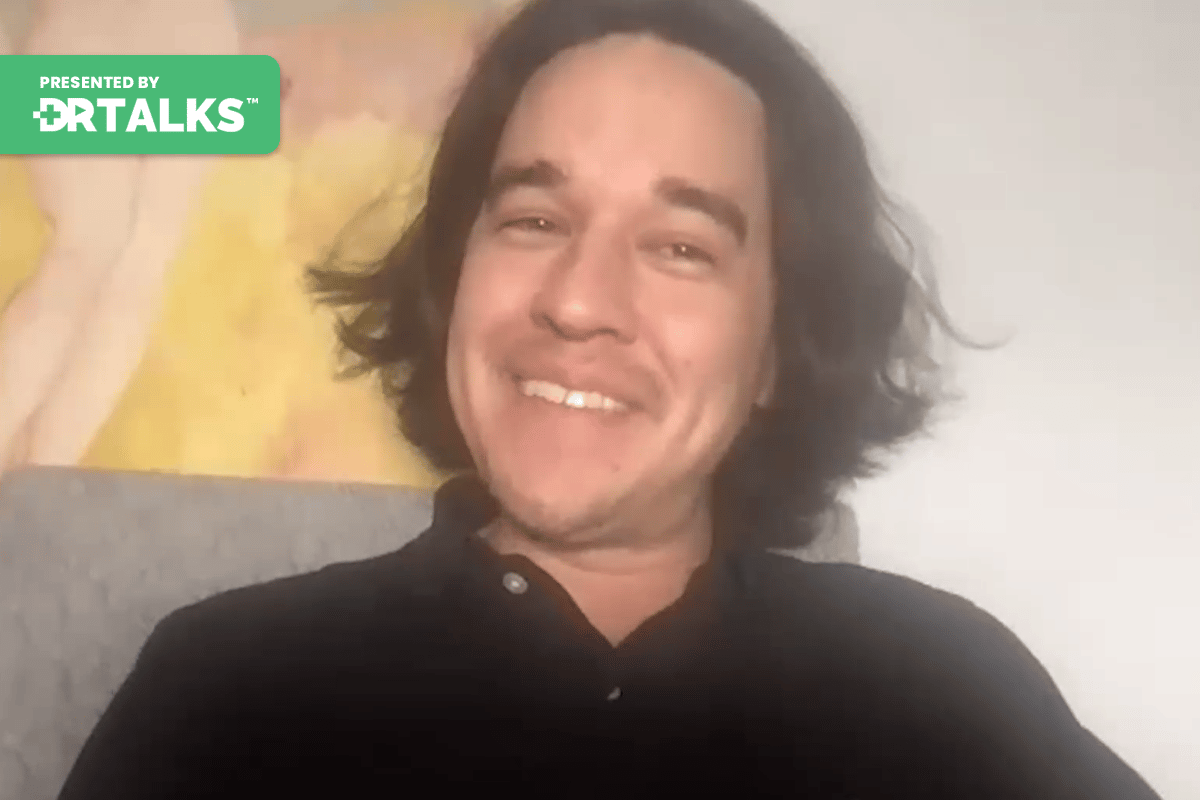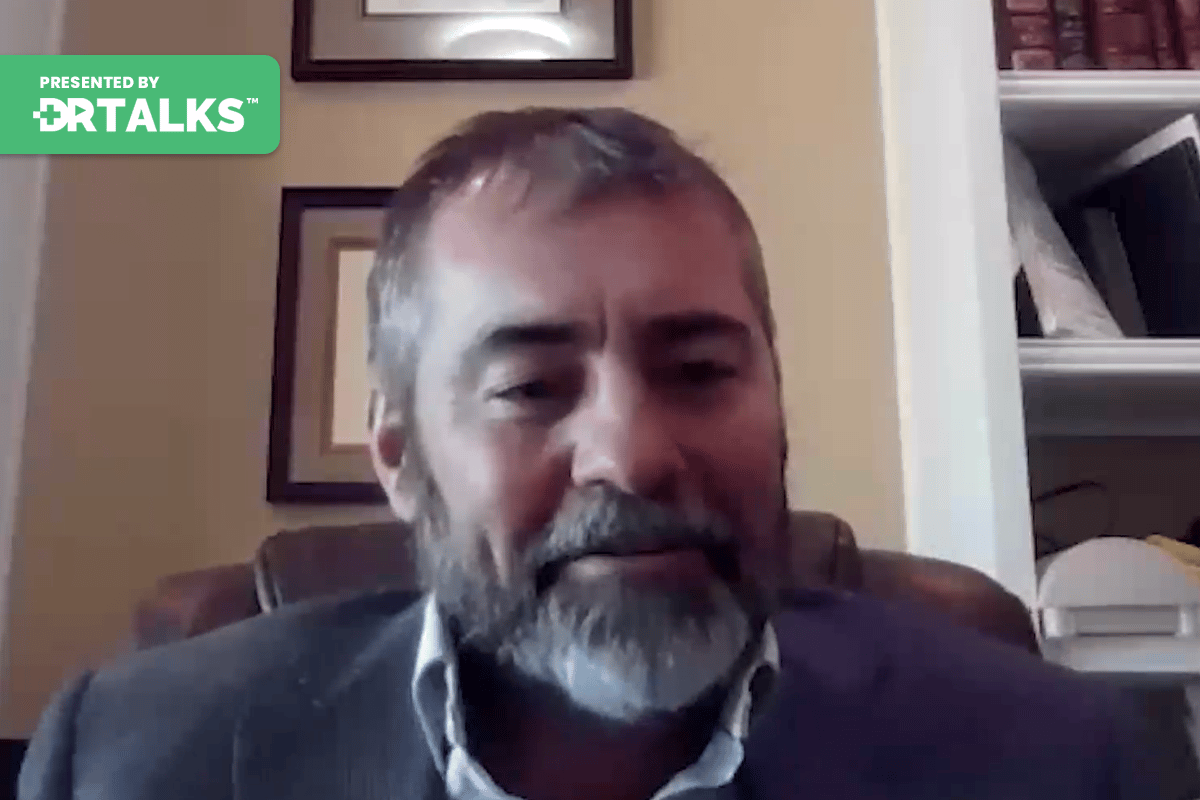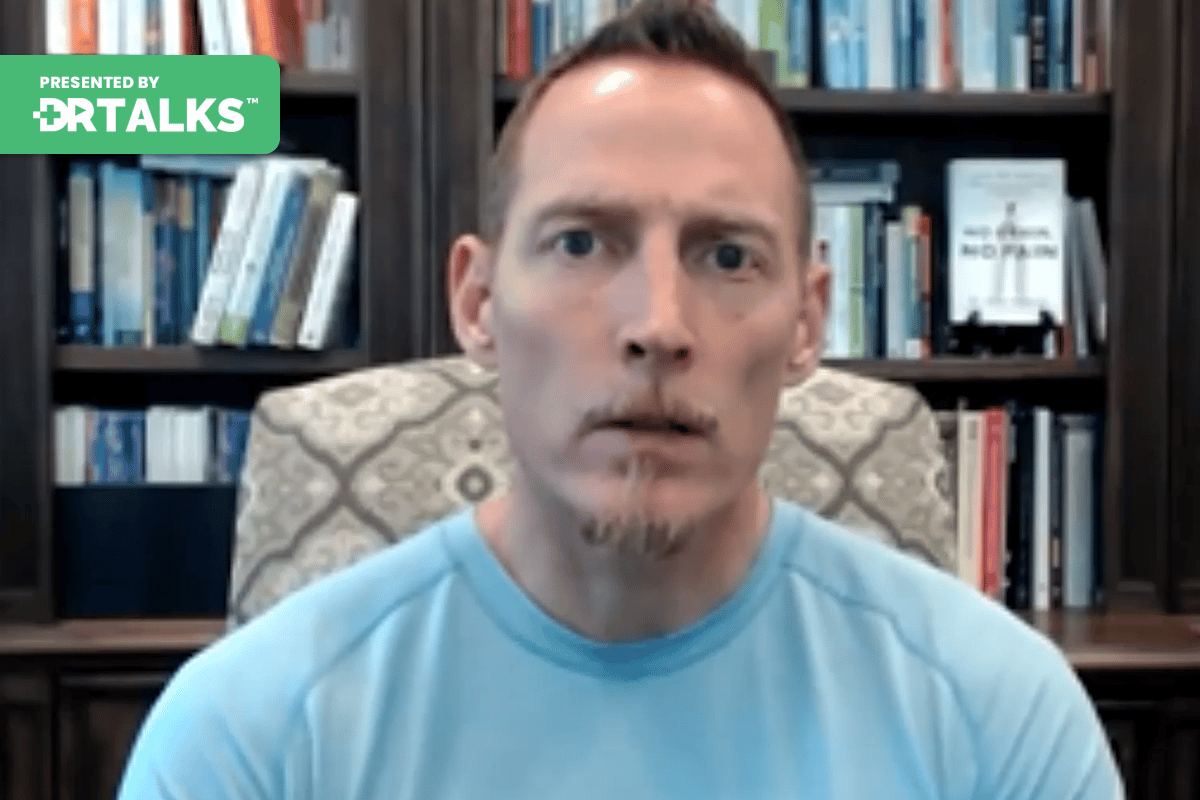Join the discussion below

Dr. Diane Mueller is the founder of My Libido Doc, an online community dedicated to helping women reclaim their desire. My Libido Doc provides education, community and health care services for women. Alongside her double doctorate in Naturopathic Medicine and Acupuncture, Dr. Diane extensively researches libido, pleasure and women's health... Read More

Mac Davis is Founder & CEO of Minicircle Inc., a bioidentical gene therapy design company researching life-extension and disease treatment gene therapies. Minicircle operates a clinic in Roatan, Honduras. Prior to his experience with Minicircle, Mac started a Bitcoin mining company in 2014 and the Austin biohackerspace in 2015. Mac... Read More
- The parasite toxoplasmosis, how you get it and why it is related to mental health
- Behind the science: what toxoplasmosis is doing to the brain, memory and dopamine system
- Chronic hidden viruses and their relationship to mental health
- Testing and treatment options for viruses and toxoplasmosis
Diane Mueller, ND, DAOM, LAc
Hey everybody, I’m Dr. Diane Mueller, your host of Microbes and Mental Health. Welcome back to another episode. I’m so excited to be here today with Mac Davis who’s gonna talk to us for a while about latent pathogens. You’re gonna learn so much and I’m gonna turn this over to you max so you can introduce yourself, tell us a little bit about your story and how you got into the work you do.
Mac Davis
Thanks Diane. My name is Mac Davis. I am a gene therapy researcher. I have a clinic in the Caribbean that does like enhancement as well as disease treatment and prevention and gene therapy. We are specializing in a personalized bio identical gene therapies. And we are doing some pretty amazing things down there today, although my mission with the gene therapy clinic is to just relieve the world of suffering and to enhance life in general. I think that what I want to talk about for the microbes summit is actually latent parasites, latent viruses and talks of plasma. So I want to start with a story that’s very close to my heart and it’s very unique story that may not really be unique.
But my dad was diagnosed about 20 years ago with a horrible disease called adhesive pericarditis. And this disease is autoimmune disease that on results in or is signified by strong consistent inflammation around the spinal cord and degeneration of the spine. It’s known to be potentially the worst chronic disease that’s recognized. And so he over the course of a few years, went from being a very healthy person who was a school teacher for most of his life to being someone who was bedridden and extreme chronic pain all the time, it really seemed that his body was just producing as much pain as it could possibly produce. And he suffered immeasurably, he had difficulty getting his medication as well because of the opioid crisis in the US at the time, it was a crisis that was noted because of addiction issues with opioids, but at the same time, patients that had diagnosed severe chronic pain diseases still had issues getting their medication. So there were a whole lot of social and political issues around this disease that surfaced, his doctors told him he was speaking at, or, you know, you just needed less medication. And he eventually got to the world specialists in, in this, in this disease and they eventually got him a system of treatment that was able to keep him from getting worse for a while. And he was really having a hard time and at one point he asked me if I had any suggestions, he wanted to try to get out there and still had hope that he could fix this problem and heal from this disease. And I basically just went to google maps and typed in functional medicine and I looked up the closest provider to him and I said, go here, you know, they’ve got some cool devices that looks like they’re you know, on the kind of on the cutting edge of medicine.
And so he went there and the physician, as soon as he was taken in did muscle testing, she called it autonomic nervous response testing. You know, this is a practice, I think that other people in this conference maybe maybe talking about and throughout this, this course of interview kind of, the physician determined that he had some type of parasite living in a spy in it. And she recommended taking three x. The normal dose of irony to me Every day for 20 days. And so to us, we thought this was pretty crazy. You know, Ivory McDonagh, arguably the most politicized drug in the world at the time, chronic pain, you know, it’s like, okay, we’ll do it. So we got the ivory Mactan. And he took it and the first day he got a lot better. And the second day he got a lot better than that.
And the third day his pain was completely gone. And after 15 years of being Bedridden, he was healed through this course of action. And we sent this information to his normal doctor, the lead physician in this disease in the world. And he was like, wow! You know, actually, I’m not surprised. And of course it would be you guys to figure this out. I had actually written a paper, although we don’t know what parasite it was. If it was parasite at all, we don’t know what it was. But I wrote a paper on toxoplasma before that and kind of circulated it because I did some online research and found that, you know, this is a parasite that focuses on colonizing the brain and the spinal cord. And there were some reports from India assists having been found in the spinal cord.
And so I was like, hey, this is really common disease causes autumn and this regulation or maybe this could be the case. So, you know, if you’re wondering from Acton turns out it does, it does it is able to kill and to get rid of a lot of toxic plasma. But we’ll get to toxoplasma later in the talk. First I want to talk about latent viruses and parasites in general. So I just mentioned it a case in my life very close to me where I saw this one on one. I’ve been reading about it on the internet for a long time in medical journals. But something really interesting about latent diseases and these latent viruses is that people have kind of this fear response that is tuned to sudden changes in the environment. And you know, it’s kind of like with epidemics versus pandemics, an epidemic is when a disease suddenly appears and then it becomes a pandemic. If it expands all over the world. But when the disease is permanent, you know what happens when a pandemic becomes permanent, then it becomes normal and it’s normalized and there’s a whole host of these viruses that live in our bodies and basically prey on our systems to replicate themselves. And these viruses have existed for all of human existence. So even though the disease burden and the effects on inflammatory regulation are absolutely incontrovertibly enormous from these latent diseases, people don’t really focus on them or take note of them the same way they do of emergency situations where you might have to go to the emergency room, Emma or you know, Covid suddenly appears and you have to be terrified of it. I think that there’s a very strong case to argue that many of these latent diseases are actually more severe than Covid in the long term. But you know, where’s our response there?
Diane Mueller, ND, DAOM, LAc
So whatever. So you just said a lot. There’s so many things that comment on. And first of all the story about your dad, wow, like I had full body chills through half of that story as I’m sure so many people did just listening to that and the recovery and the hope and also the annoyance of why is this not being looked for, right? Why are some of these things not being looked for. So I think one of the things that’s probably initially coming up for people right now and listening to this thing around, Okay, latent pathogens and viruses and toxoplasmosis is like how do people begin, you know, they’re struggling with mental health. 12 part question one. How do these relate to mental mental health and to how do people begin to even look for and figure out if they should go down this, you know, this pathway of exploring treatments and testing or lack of testing for some of these pathogens.
Mac Davis
Yeah, so this is a really interesting question. It’s actually pretty complex. I think that everybody should go down this road of inquiry because these common viruses like Epstein Barr virus, cytomegalovirus herpes, these are viruses that when you catch them the first time, they may cause a cold or flu for a short time, this type of response. But once they began to colonize the body and stay in there, stay in the brain, these herpes, these are all different types of herpes viruses. And in terms of the scientific categorization, they’re all under this category and it’s well researched and literature that they increase anxiety. They decrease executive function they’ve been known to increase by polarization and really all sorts of different neuropsychiatric dis regulation because all of these viruses ultimately they kind of have they have two properties and finding one is that they are dis regulating inflammation because they want to replicate while tricking your body and to not getting rid of them. So this means that they’re causing an inflammatory response and masking it at the same time. So that’s really weird. And then the second thing that all these viruses do is they prevent Aw Takaji. So they have these mechanisms in place to prevent cells from killing themselves when the cells find out that they’re infected or when they have cancer. So all of these viruses, these herpes viruses, now it’s recognized that like 12% of cancers are known to be caused by these infections. I think that number is a number that has gone up every few years and it may keep going up because these viruses have mechanisms to prevent yourselves from recognizing that they’re in a disease state. So those are some of the ways that the virus is connect to mental illness. Was there? What was the second part of your question?
Diane Mueller, ND, DAOM, LAc
There was a second part. And I’m going to come back to that because now you’re making me want to go a different direction which is but I will come back to part two, which is where do you feel like? And I don’t know if this is something you’ve researched, so we can go into this or not, but if you’ve researched it, where do you feel like human endogenous retroviruses fit into this whole picture because that’s what I’m thinking of when you’re talking about. Is that something that you can talk to at all.
Mac Davis
I don’t think I can talk a lot to it in terms of knowledge of scientific knowledge today of mental illness. I know that endogenous retroviruses are super interesting and are associated with aging. You know as aging occurs more of these endogenous retroviruses are becoming activated and I think a super super fascinating totally different story but super fascinating pieces that the ark gene is this it’s this gene that allows mammals to have memory and this originally is believed to have come from an endogenous retrovirus now. I think it’s super fascinating to consider that some viruses may be beneficial. You know if if we look at the bacterial microbiome there’s tons of bacteria that are definitely beneficial and are working in an ecosystem in order to create a happy, healthy you but in this case a lot of use herpes viruses and pathogenic parasites are well recognized to probably have no benefit to your health and we should probably just focus on getting rid of them.
Diane Mueller, ND, DAOM, LAc
Yeah that’s a really good point. And the retroviruses like my understanding of the retroviruses right why bring it up right there is just their ability to get into our D. N. A. And awaken. Right so it’s like I would just kind of call them one of these latent pathogens but we can we can go on because it’s like even the even the retrovirus is really related to everything you’re talking about around like okay, so we have these viruses, we have these herpes family viruses we have parasites and toxins. You know the one that we’re gonna spend a lot of time on? We can throw the retroviruses into the same category but the category and throwing is like back to part two of my question. Like how the heck do people figure out, what do they do if they need to test for these? Do they? Or is it more kind of along the lines of what you’re saying around? Like we should just assume we have these things.
Mac Davis
We should assume that we have these things that the part of what’s been holding scientists back from focusing a lot more resources on them and would have been holding physicians back from treating it more aggressively is because of the same abilities that these parasites have to cover up their tracks. It’s super hard to actually test for them in a lot of cases. It’s weird the most common way that people test for infections is by taking out the blood and seeing if it has antibodies in it that bind to that pathogen. And most people that have these parasites when the parasites become latent, we call it latent because your body is no longer producing antibodies against it and it’s kind of found these little niches to to crawl into and hide it and it’s become more successful at preventing your immune system from recognizing it.
So if the testing method that we have is one that’s based on it, if your immune system recognizes that, then that means we’re not going to be able to sufficiently track it. So, something super interesting about many of these, these forms, these latent parasites is that they have an active form and they have like what people used to think was a passive form or a latent form and the actual the circus proteins on the outside of the pathogen, it are either hidden or completely change. And so the type of pathogen that is causing the immune response on its surface looks completely different from the type that’s actually living in here? So, if that makes any sense,
Diane Mueller, ND, DAOM, LAc
It does what I want to clarify for everybody. So what I’m thinking about that, like what comes up for me is like lime and the different morphology is the different shapes and with lime, you know, one of the things we’re talking about throughout this summit with with lime and Barelli and that microorganism is when it changes its shape, it actually then is one way of evading our immune system, right? It’s a different mythology. So when you’re talking about viruses in this way, is there a level of what you’re describing, is there a level of that actually creating a way to basically evade and hide from our immune system. Is that happening?
Mac Davis
Totally, totally.
Diane Mueller, ND, DAOM, LAc
Yeah, so the surface proteins are basically part of it’s tricky way of tricking us essentially.
Mac Davis
Yeah, yeah. Herpes is kind of a mask system where it covers up the what would be the equivalent of its spike protein, the entry protein that it has in order to get into cells. It’s got this like and shield that wraps around it and prevents your immune system from recognizing it. But yeah, the comparison to lime and is quite apt that’s one of the reasons why it’s so hard to get rid of.
Diane Mueller, ND, DAOM, LAc
And then another thing just because I feel like this is going to come up when we’re talking about okay, our immune system not responding. I feel like with our, you know, our previous pandemic pcr testing really got put on the map as far as people actually knowing what that is. So, is that an option for people from a testing perspective, we’re not really when we’re talking about this family of viruses
Mac Davis
And that’s a good question. For viruses I couldn’t tell you for sure. Part of the issue is definitely that these viruses are embedded inside the neurons. They’re embedded inside different places. I think cytomegalovirus is actually pretty easy to test for. But something like toxic plasma is up until now impossible to test for except the very specialized labs.
Diane Mueller, ND, DAOM, LAc
Yeah. And some of these things too, I think are one of the problems is like even if certain testing mechanisms could be created and signed, it doesn’t mean we’ve even created them yet. So that can always be an issue as well.
Mac Davis
Yeah.
Diane Mueller, ND, DAOM, LAc
What else do we want to say about just like from do we want to talk about? I know we’re gonna move on to toxoplasmosis but before we do, what else do you want to say more about like the psychotherapy, like any sort of, you know, perspectives and that way do you have other things to mention from that perspective on the viral component?
Mac Davis
On the viral component? No, I think where it gets really interesting is with so
Diane Mueller, ND, DAOM, LAc
Okay, do you feel ready to move on to that or should we say anything more about treatment or anything else from the viral perspective before we shift over,
Mac Davis
You know, I think that it’s I have some sadness and and grief around the lack of direct treatment options and vaccines that have been developed for these viruses and a lot of that is probably coming from people not understanding the long term consequences of having these diseases and really focusing on the short term consequences. I think that everything kind of comes to a head with talk. So talk so is by far the most interesting latent parasite and it’s kind of the emblem. I think of this whole of this whole concept.
Diane Mueller, ND, DAOM, LAc
Well it sounds like you’re getting myself and our listeners excited to talk about talk. So let’s talk about it.
Mac Davis
So talk so toxoplasma Gandhi is the Latin limb for it. It is a universal parasite that infects all warm blooded animals and it is a single celled animal itself, it’s not a virus, it is a single celled animal and humans and other mammals typically get it from eating, pray get infected and predators beat them and once they’re eaten the tox. So it lives in these cysts in the body and the cysts are present in the muscle and in the brain and in the gonads, the testicles or the ovaries. And once an animal eats these cysts for example.
It might be a cat eating a mouse, that’s the typical example. In the case of human, it’s humans eating meat typically. And once you eat a piece of meat that has the cyst in it, the cyst opens up once it’s inside your gut and the toxic comes out and it’s specially designed, it knows to come out and go through your gut lining. It burrows through the gut lining and it causes enough inflammation for T cells to come over and it burrows inside the T cell and then it hijacks the T cell and once the T cell gets into the brain it comes out of the T cell and it starts infecting the brain. And again, this is incredibly weird. There’s a single celled animal that you can accidentally eat, it knows how to get into your brain and then it specifically sets up shop in your hippocampus amygdala and in the cortex the cerebral cortex, so that’s the outside of the brain. The prefrontal cortex, you know, is the seat of kind of executive function, rational thinking. A sense of self, the amygdala or the mid delay their mediating your response to your recognition of fear, anxiety, arousal and the amygdala are next to the hippocampus which is the seat of your memory. So talk, so is finding and burrowing, it’s somehow able to identify these places in the brain. And once it creates these cysts it starts epi genetically remodeling the neurons around it. It starts absorbing certain neurotransmitters and creating other neurotransmitters. It increases testosterone and dopamine levels in the brain, it decreases serotonin and Gaba levels. It actually uses Gaba which is you know a neurotransmitter that mediates anxiety, it uses it as a food source. So it’s super weird talk so is you know famously known to cause mice to become attracted to the smell of cat pee and to become attracted to cats now mice you know the thing that they should be most afraid of in their whole life is cats and talk.
So re wires the amygdala in such a way that it completely inverts their response, their anxiety response. So what does this mean? You know when I talked to jaroslav flicker at Charles University, he’s the world expert in studying talk so, and you know, he told me that he doesn’t think that talk so knows that it’s not in a mouse spring, it’s doing the same thing to humans. And he’s done a huge amount of studies. He’s shown that it’s degrading executive function and he’s shown that it decreases reaction time, it increases risk taking behavior. It on, there’s a few other things that will probably come out, but there’s this really wild study he did where he took motorcycle accident. People, people that died in motorcycle accidents and car accidents and he dissected their brains and the people that died in the accident and caused the accidents had way higher levels of toxic plasma in their brains than those who did not.
Diane Mueller, ND, DAOM, LAc
So it’s similar as the mice, then it’s like decreasing a fear response is making people more have a tendency for this thrill seeking behavior. Then, can we say that, do you think?
Mac Davis
Yeah, yeah. I mean, I think in a simple way you could say, you know, there’s that thrill seeking behavior and a slower reaction time, you know, of course that would cause more accidents. I think it’s actually a 2.65 times higher risk of getting in a traffic accident for people that have an active toxoplasma infection. But I think what’s even more interesting is there’s this parasite theory of politics that, you know, you can search for this on the journals and basically people that have higher rates of parasites living in them. Typically on a political compass score will select responses that indicate they believe in more authoritarian political regimes as being right. So I think that in one sense one might speculate that parasites in the body kind of suggests that, well, let’s have parasites out of the body too. But I think at a in a less speculative way, at a deeper level, it’s clearly mediating predator prey relationships and making animals not afraid to be eaten by prey. It’s rewiring the amygdala such that you know, historical trauma responses perhaps are not as accessible that they’re suppressed. If you look at the global population of voters, the majority of voters are infected with toxoplasma Because every year the likelihood of getting infected with toxins increases by the time people are 80 years old, there’s an 80% sir prevalence. And what that means is that there’s virtually 100% latent infection rate because the active sero prevalence is much, many fewer people have an active serial prevalence than actually happened in their brands.
Diane Mueller, ND, DAOM, LAc
I want to clarify that. Do you think that’s happening because talk so is like spreading and getting worse or is it just more that, okay, somebody’s 80 they’ve eaten a lot more food in their life. So there’s just the likelihood of exposure,
Mac Davis
It’s the likelihood of exposure, it’s the same way with herpes. By the time somebody is 80 they have over an 85% chance of testing positive on an antibody test for her views, which probably means that they definitely have it even if it’s not showing up on the diagnostic. So the are getting, It’s not that the diseases are getting worse. It’s that they’ve always been worse.
Diane Mueller, ND, DAOM, LAc
Yeah. Yeah. And we’re just living longer and longer, meaning we are more likely to more and more likely to get them.
Mac Davis
Yeah.
Diane Mueller, ND, DAOM, LAc
You mentioned research. What about funding?
Mac Davis
Well, you know, unfortunately, I’m not aware of there being any toxoplasmosis funding. There was one research institute that is now out of funding. They were able to prove, I think in the 90s that there was more than a correlation between toxoplasmosis and schizophrenia. So they did a huge amount of studies they did over 100 and really were the first to solidify that Mark. And I feel like I want to say that these, the researchers that are researching it in spite of the funding, There’s more and more every, every couple of years I’ve checked back and I’ve been amazed to see how much research is actually happening. These guys are heroes, you know, because they’ve, they’ve identified it this incredibly important threat and they’ve chosen to research it, even though it’s not widely recognized and there isn’t a lot of funding for it and you know, there’s no toxoplasmosis research institute for it.
Diane Mueller, ND, DAOM, LAc
So I assume that toxoplasmosis works like most other parasites where there’s life cycles, correct?
Mac Davis
Yeah, yeah, the life cycle is basically there’s an active form called the and there’s a latent form called the brady Zoe latent form lives in these little cysts that makes in your body. The active form is like out there, not an assist, actively trying to infect and colonize. And when people think of toxoplasma, a lot of people think of cats and that’s because cats, due to having such a high meat diet, I believe they’re missing this certain enzyme in their gut and toxoplasma is only able to sexually replicate inside of cats stomachs. So, when one toxoplasma meets another toxic plasma and they want to replicate, the only place they can do it sexually is in a cat and cat poop has a high likelihood of having talks, oh, plasma in it, toxic plasma has also been called the Crazy Cat lady disease. And some people have speculated that you know, you get one cat, wow, this is great, you get another cat, wow, this is great. And then toxoplasma might make you just want more and more and more accounts.
Diane Mueller, ND, DAOM, LAc
So the unique clinical sign. So if I’m understanding you correctly, we are not, we’re not replicating talk. So it’s not like growing and multiplying inside of us, correct?
Mac Davis
Oh, I mean it once, once you eat cyst then it will grow and multiply as much as your immune system allows it to
Diane Mueller, ND, DAOM, LAc
Okay, then differentiate what’s happening there with the cats. Yeah.
Mac Davis
When it’s replicating inside the human body, this is a sexual. So it’s just making a copy of itself inside a cat. It’s sharing information and it’s, you know, it’s combining multiple organisms and syria new a new type.
Diane Mueller, ND, DAOM, LAc
Okay, so that’s how it can morph in some ways. It’s more inside the right.
Mac Davis
Yeah.
Diane Mueller, ND, DAOM, LAc
So that I’m also curious, you know, with life cycles, we’re talking about hippocampus cortex, amygdala. So our people then, because of the life cycles, like if people with mental health disorders, if they’re experiencing, for example, like ways where all of a sudden they have depression, anxiety, bipolar is memory issues, whatever, whatever it could be, they’re experiencing ways where it’s like, gosh, it’s real bad and then it seems like it gets a little better and then it’s worse. Again with that in any way be a sign potentially of something like toxoplasmosis.
Mac Davis
Yes. Yes, potentially. Yeah. As a wave thing and all these latent parasites, they come in waves, you know, herpes and HPV had there’s certain amounts of months that they kind of hibernate and then come out and hibernate and come out and toxoplasma is the same way, I mean, people, I’m not sure anyone knows what the, what the cycle is. Once. It’s already gotten into your brain what the cycle is when it comes out. But it has to do with inflammation regulation, and I wanna bring up this book too. It’s a really cool book. This is the only book on treating toxic plasma, as far as I know that’s ever been published, there is a wonderful physician in Germany, Dr. Uwe Auf who has you know, the book is called Shadow Disease chronic active toxoplasma.
We kind of re reframed it instead of calling a latent who’s calling it chronic active. It’s a different way of putting it. But most of the patients in here, you know, he’s got kind of like a diagnosis checklist and he’s got a system for doing diagnostics, and I’m not just looking at the symptoms, but, you know, a quick, quick run through for me of the symptoms. People, typically, a lot of people had strong chronic fatigue, sometimes muscle cramping, and just like a wide a wide range of concentration disorder, sweating, irritability, dizziness, just a lot of different types of things in this, in this book, he’s lucky enough to have found some really interesting testing approaches that I didn’t even know existed. So there’s development happening out there.
Diane Mueller, ND, DAOM, LAc
Yeah, this is exciting for the future of medicine, I’m so happy to hear this. Yeah, so, anything besides, you know, obviously we’re focused on mental health for the purpose of the summit and we’re talking about that. But besides mental health, is there anything else from toxoplasmosis? Symptom wise that is happening in the body that people should be triggering? Like maybe this is talk so osmosis.
Mac Davis
Yeah. So the thing about Long term chronic latent tox that I want to say is that it has a universal disease burden it that dis regulates inflammation and in everybody causes faster aging. It causes loss of gray matter. Yaroslav flicker. First thing he told me when he sat me down in Prague was that he believed that it accounted for 23% of the world’s disease burden. And he recently put that out in a paper. I don’t think that’s I don’t think that’s a crazy thing to say. And that’s, you know, cardiovascular disease, that’s cancer, that is Alzheimer’s disease. And brandy generation. You know, what toxic is doing is in the short term is inducing these behaviors in order to try to get you to be eaten by a predator and in the long term through the inflammation dis regulation you’re losing brain mass and you’re losing control over your immune system, which could present almost any symptom, I would imagine.
Diane Mueller, ND, DAOM, LAc
Yeah, that’s what I figured you would probably say. I feel like so many of these latent hidden chronic pathogens. It’s like they’re all the great makers. So we should just consider we have, you know, a good a good number, if not all of them. So I’m sure we are starting to make people a little bit nervous right now, so we should probably let everybody know what we do about this. So can we talk treatment?
Mac Davis
Lets talks treatment I think that it’s worthwhile to point things out and get people a little nervous because in my experience people are constantly avoiding becoming aware of this. I had a friend who, you know, he had a new girlfriend, this girlfriend started getting a lot of cats all of a sudden and he felt like he was getting some of these symptoms like sudden headaches and dizziness and blurry vision and just if you go to webmd and look at toxoplasmosis, you know, some of those symptoms are there. So he went to his doctor and said, hey, can I get a blood test? You know, completely noninvasive blood test. Doctors like, you know why, you know, this is not a big deal and kind of looked at him like he was a crazy hypochondriac. So yeah, it’s a weird thing, but in terms of treatment options super weird. Also I would say that the foremost politicized drugs in history are involved with treating this disease. The first one to know is Daraprim, you know, Daraprim was recently made a lot of news when this guy Named Shkreli bought the patent for it and increased the price of it in the United States from I don’t know, some type of not still not reasonable over the expensive price to like $12,000 per year for a drug that doesn’t cost that much to make. And again that 12,000 was for insurance companies, not typically not for individuals to pay, but Daraprim is part of the first line of defense. You know, I think 25 mg, 50 mg of Daraprim per day for I don’t know, 10 to 30 days is generally recommended. And then some type of sulfur antibiotic. I’ve actually got Got a visual here. I got this Daraprim did not cost me $12,000. I went to Mexico got for $5. Some type of sulfur antibiotic sulfa Diocese unit.
This one is another type that is combined with another antibiotic that makes it extra effective in combination and then fill in IQ acid is super critical because the way that Dera frameworks is it prevents the parasite from having access to clinic acid and that’s a vitamin that it needs to live humans have a more advanced fully metabolism. And with the addition of clinic ask that humans can metabolize that and they’re fully metabolism. But the toxic cannot. So I mean the thing is this this course of treatment is known to effectively treat acute toxoplasmosis. You know when a person or a cat is having an extreme reaction and needs to be emergency treated, This generally works.
That said it’s known to not completely eliminate the disease. There are two research drugs that are in development. One of them, oh man, I was gonna try to remember the name, it’s like Jack or Jazz six, something like that Princeton University and I think Kentucky University had been working on it and it seems to be super effective and may be able to completely eliminate the disease. It is the queen alone, a queen alien. So that’s the same class of drugs that hydroxy chloroquine, chloroquine belong to. It’s pretty funny.
But it’s an incredibly great anti parasitic class of drugs. And then of course I respect him, like I mentioned, it does have some effectiveness against toxoplasma super wild that these some of these anti parasitic have so many different mechanisms of action that, you know, a lot of them are preventing the replication and binding of so many different parasites and viruses through so many different means. It’s really strange. Normally in the world of drugs and drug development you would expect a drug to like have one main course of action or maybe at most like three or four. But you know, if you look at how I’ve been actively works, there’s just like dozens of ways that it interferes with dozens of different types of parasites. It’s very strange.
Diane Mueller, ND, DAOM, LAc
It’s pretty wild. Do you find that like from a treatment perspective often times you have to have more than one of these remedies on board or is oftentimes you can pick like one or two of these and that’s an effective treatment.
Mac Davis
Really good question. So for what’s available now with toxoplasma I just mentioned the Daraprim and the sulfur type antibiotic. Basically the standard of care is you have to have dara programa with some type of adjunct antibiotic and the antibiotic is not treating a bacterial anything. I’m not even sure if people know why it works so well in combination but it does what the good doctor recommends in the book is treatment cycling because the talks of plasma appears to be able to adapt to certain combinations. And so he recommends I think like every 10 to 30 days to cycle to a different type of most of them are I think they’re all antibiotics clinton. My son was the first one that was discovered to effectively treat Talk. So and that has been used by itself to treat talk so classically. But yeah it really seems like this. You know the fact that it is a single celled animal. It’s more complex. It’s got eukaryotic D. N. A. You know it’s just able to adapt much more effectively and at a much more complex level than a lot of these viruses.
Diane Mueller, ND, DAOM, LAc
Yeah. And I think that’s, you know, this is a common thing to the need for treatment and pulsing and that sort of thing. I see that another latent pathogens, do you feel like people need to do this? Like is this something that people should do for years? You think from a pulsing perspective or what does that look like treatment time?
Mac Davis
Me personally, I’m not a position. I’m a researcher.
Diane Mueller, ND, DAOM, LAc
Yeah.
Mac Davis
I have no idea. I think that in the book, you know, he’s dealing with patients that have severe disease that needs treatment and he’s been able to show that many of these patients have it have talked so, and when they get treated it gets significantly better. So that’s a good indication. And I think that some of the patients are, you know, going into long term remission and sometimes it’s coming back and they need to do another treatment cycle. Yes, that’s what I’ve read in the book for myself, you know, I’m interested in I feel like I probably have it, you know, I’ve I’ve looked at my own kind of risk averse nous and my reaction time and my testosterone level and all these things seem to suggest that I might have toxic plasma. And so I’m interested in taking a course and you know, judiciously watching my full weight level in order to safely manage it and to find out if there are any psychological changes that I might notice. I think that, you know, although at this point in history that’s kind of a little bit more of a non mainstream off the rails thing to suggest. But I mean the fact that I more than likely have it and the fact that it’s causing cumulative autoimmune dis regulation insists in my brain and loss of three matter executive function. I might as well try something to get rid of it. So
Diane Mueller, ND, DAOM, LAc
I love it. This has been such an informative conversation. I’m so grateful to have this conversation. Is there anything you want to make sure people know about your website, how to get a hold of you? And then is there anything else that you feel like we need to make sure that we wrap up with
Mac Davis
Totally. So my website is minicircle.io and my clinic website is minicircle.clinic. We’ve got a ton of gene therapies for enhancing testosterone level, improving skin health, DNA repair, decreasing epigenetic rate of aging. Lots of fascinating stuff that I would love to talk about at another conference and a quote that I thought was really impactful. I had a friend that was at the mineral link launch party. Like the announcement of the company neuralink. It’s one of Elon Musk’s companies and they’re trying to make these brain implants that allow your brain to connect via bluetooth to the internet and after Ellen gave his speech, you know, he was kind of hanging out with this, this group of people after the talk and my friend asked him what he thought of talks, oh plasma. And you know, my friend had just recently found out about toxic plasma and was curious to see what you want to say. And yuan looked him dead in the eye and said point blank toxoplasmosis runs the world and he turned away and continued to answer other questions
Diane Mueller, ND, DAOM, LAc
Wow.
Mac Davis
So incredibly impactful disease. It’s affecting psychiatry, mental health, politics and personal health. And I really want to see a movement towards recognizing that and actively
Diane Mueller, ND, DAOM, LAc
Well thank you so much and you guys, you can find all of Mac’s information on a speaker speaker bio, make sure to check it out. Some of the therapies they’re really studying and researching over at many, mini circle, right? I’m saying it correctly at mini circles. They’re pretty impressive. So definitely check that out. Thank you again for being here with us. I’ve loved every second of this and really appreciate your time Mac.
Mac Davis
Thanks Diane, I really appreciate your invitation
Downloads










